
JOURNAL OF SURFACTANTS AND DETERGENTS
Scope & Guideline
Pioneering Research in Chemical Engineering and Beyond
Introduction
Aims and Scopes
- Surfactant Chemistry and Formulation:
Research articles explore the synthesis, characterization, and application of various surfactants, including ionic, nonionic, and biosurfactants, focusing on their role in detergent formulations. - Environmental Applications:
Studies emphasize the development of eco-friendly surfactants and their applications in bioremediation, oil recovery, and cleaning processes, highlighting sustainability in the surfactant industry. - Physical Chemistry and Interfacial Science:
The journal includes research on the physical and chemical properties of surfactants, such as micellization, adsorption, and rheology, contributing to the understanding of surfactant behavior in different environments. - Innovative Applications:
Papers cover novel applications of surfactants in diverse fields, including cosmetics, pharmaceuticals, and food industries, showcasing their versatility and importance in product formulation. - Biosurfactants and Green Chemistry:
The journal highlights the production and application of biosurfactants derived from renewable resources, aiming to promote green chemistry and sustainable practices in surfactant usage.
Trending and Emerging
- Biosurfactants and Sustainable Production:
There is an increasing trend towards researching biosurfactants derived from natural sources, emphasizing their environmental benefits and potential applications in cleaning and bioremediation. - Surfactants in Oil Recovery:
Recent publications have shown a growing interest in the application of surfactants for enhanced oil recovery processes, reflecting the importance of surfactants in energy production and environmental management. - Nanotechnology and Surfactants:
The integration of nanotechnology with surfactant applications is on the rise, exploring the use of surfactants in the formulation of nanomaterials, drug delivery systems, and advanced cleaning agents. - Personal Care and Cosmetic Applications:
Research focusing on the role of surfactants in personal care products and cosmetics has gained prominence, highlighting the need for mild and effective surfactants in consumer products. - Interfacial and Colloid Science:
There is a notable increase in studies examining the interfacial properties and dynamics of surfactants, contributing to advancements in understanding their behavior in complex systems.
Declining or Waning
- Traditional Synthetic Surfactants:
Research on conventional synthetic surfactants has become less prominent as there is a growing emphasis on sustainable and biosurfactant alternatives, reducing interest in traditional formulations. - Basic Theoretical Studies:
There has been a decline in purely theoretical studies that do not translate into practical applications, as the journal increasingly favors research with direct implications for industry use. - Surfactants in Non-Environmental Applications:
Topics related to the use of surfactants solely in non-environmental applications, such as in industrial settings without consideration for environmental impact, are becoming less frequent.
Similar Journals

Central European Journal of Energetic Materials
Unveiling the Science Behind Energetic MaterialsWelcome to the Central European Journal of Energetic Materials, a distinguished publication in the field of energetic materials, published by the INST INDUSTRIAL ORGANIC CHEMISTRY in Poland. This journal, with ISSN 1733-7178, has been a vital platform for researchers since its inception in 2009, promoting the latest advancements and discoveries in the dynamic fields of Materials Chemistry and Organic Chemistry. With an admirable presence in the academic community, it boasts a Q3 ranking in Materials Chemistry and a Q4 ranking in Organic Chemistry for 2023, showcasing its contribution to foundational research despite competitive challenges. Researchers looking to disseminate their findings will find this journal a reputable venue, supported by rigorous peer-review processes and a commitment to open dialogue within the scientific community. The journal is pivotal for academics, professionals, and students interested in the synthesis, characterization, and application of energetic materials, making it a notable resource for understanding the complexities and innovations within this specialized domain.

RUSSIAN CHEMICAL BULLETIN
Your Gateway to Innovative Chemical Research.RUSSIAN CHEMICAL BULLETIN, published by SPRINGER, serves as a pivotal resource in the field of general chemistry, covering a wide array of topics that impact both theoretical and applied chemistry. With an ISSN of 1066-5285 and a presence since 1993, this journal provides a platform for disseminating significant research findings, practical applications, and novel methodologies within the broader chemistry community. While it currently holds a Q3 ranking in the Chemistry (miscellaneous) category and occupies the 230th position out of 408 in the Scopus rankings, its reputation continues to grow, fostering collaboration and innovation among researchers and professionals alike. Although the journal does not offer an open-access model, it is committed to making findings accessible within the academic community, ensuring that valuable insights can inform future research. With an anticipated convergence of studies extending to 2024, the RUSSIAN CHEMICAL BULLETIN remains an essential reference for those dedicated to advancing chemical science.
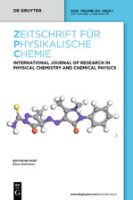
ZEITSCHRIFT FUR PHYSIKALISCHE CHEMIE-INTERNATIONAL JOURNAL OF RESEARCH IN PHYSICAL CHEMISTRY & CHEMICAL PHYSICS
Pioneering Insights in Physical ChemistryZEITSCHRIFT FUR PHYSIKALISCHE CHEMIE-INTERNATIONAL JOURNAL OF RESEARCH IN PHYSICAL CHEMISTRY & CHEMICAL PHYSICS, published by WALTER DE GRUYTER GMBH, is a highly regarded platform for researchers in the field of physical chemistry and chemical physics. With an ISSN of 0942-9352 and an E-ISSN of 2196-7156, this journal serves as a vital resource for the dissemination of original research, critical reviews, and insightful discussions that span theoretical and experimental investigations. Recognized for its quality, it holds a Q2 classification within the 2023 quartiles of Physical and Theoretical Chemistry and ranks 72nd out of 189 in the Scopus database, placing it in the 62nd percentile. The journal’s extensive publication history, originating from 1943, showcases its long-standing commitment to advancing the understanding of complex chemical phenomena. Although it currently does not offer open-access options, it continues to attract contributions from leading experts worldwide, making it essential reading for professionals, researchers, and students dedicated to pushing the frontiers of chemical science. The journal is located in Berlin, Germany, at Genthiner Strasse 13, D-10785 Berlin, Germany.
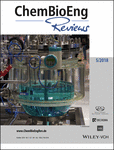
ChemBioEng Reviews
Pioneering Insights in Bioengineering and Chemical EngineeringChemBioEng Reviews is a premier academic journal dedicated to advancing the fields of biochemistry, bioengineering, and chemical engineering. Published by WILEY-V C H VERLAG GMBH, this journal serves as an essential platform for researchers and professionals seeking to disseminate groundbreaking insights and innovations. With a remarkable impact factor and a solid reputation, it is ranked in the top quartile (Q1) across multiple disciplines, including Biochemistry, Bioengineering, and Industrial and Manufacturing Engineering. The journal's comprehensive scope covers the synthesis, analysis, and application of bioengineered solutions, making it a vital resource for anyone involved in process chemistry and technology. With an unwavering commitment to high-quality scientific discourse from 2014 to 2024, ChemBioEng Reviews is not only pivotal for the academic community but also contributes to industry advancements in filtration, separation processes, and the intersection of chemical and biological engineering.
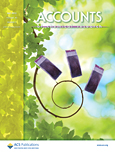
ACCOUNTS OF CHEMICAL RESEARCH
Pioneering Insights for a Healthier TomorrowACCOUNTS OF CHEMICAL RESEARCH, published by the American Chemical Society, is a premier journal dedicated to advancing the field of chemistry and its applications in medicine. With an impressive impact factor and recognition as a Q1 journal in both chemistry and medicine categories, it ranks among the top-tier publications, exhibiting an outstanding Scopus rank of 8 out of 408 in general chemistry, placing it in the 98th percentile. This journal has been a vital source of innovative and significant research since its inception in 1968, and it aims to provide a platform for high-quality research articles, reviews, and critical essays that bridge the gap between chemical research and clinical implications. While it is not an open-access publication, the insights available in Accounts of Chemical Research are invaluable for researchers, professionals, and students seeking to explore the latest developments and interdisciplinary approaches within the dynamic fields of chemistry and medicine.
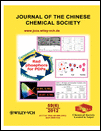
JOURNAL OF THE CHINESE CHEMICAL SOCIETY
Illuminating the Path of Chemical InnovationJOURNAL OF THE CHINESE CHEMICAL SOCIETY, published by WILEY-V C H VERLAG GMBH, is a vital resource in the field of chemistry, focusing on a broad array of topics pertinent to general chemistry and its advancing sub-disciplines. Established in 1954 and running through 2024, this journal serves as a significant platform for the dissemination of high-quality research, showcasing innovative findings and developments within the chemical sciences. With its Q3 category ranking and positioning at Rank #203 in General Chemistry per Scopus, it reflects the journal's commitment to research excellence and impact. While not an open-access publication, it ensures accessibility to a global audience, making it an essential tool for researchers, professionals, and students alike seeking to stay informed and engaged in the evolving landscape of chemistry.

Vietnam Journal of Chemistry
Exploring the Frontiers of Chemical ScienceVietnam Journal of Chemistry, published by WILEY, is a prominent academic journal that serves as a platform for the dissemination of innovative research in the field of chemistry. With its ISSN 0866-7144 and E-ISSN 2572-8288, this journal has made a significant impact on the global scientific community, evidenced by its 2023 Scopus ranking as #274 in the General Chemistry category and a commendable percentile of 32nd. The journal, categorized in the Q3 quartile for miscellaneous chemistry subjects, aims to foster communication among chemists from Vietnam and around the world, encouraging collaboration and the exchange of cutting-edge knowledge. While it currently does not offer Open Access options, the Vietnam Journal of Chemistry is committed to contributing valuable insights from its coverage years spanning from 2018 to 2024, making it a worthy resource for researchers, professionals, and students dedicated to advancing the field of chemistry. Based in the United Kingdom, it stands as a testament to the vibrant research endeavors emerging from Vietnam and beyond.

JOURNAL OF THE INDIAN CHEMICAL SOCIETY
Fostering Innovation in Diverse Chemical DisciplinesJournal of the Indian Chemical Society, published by Elsevier, stands as a cornerstone in the field of chemistry, particularly representing the rich chemical research emanating from India.
With a significant history dating back to its establishment, this journal encompasses diverse disciplines including Drug Discovery, Electrochemistry, Inorganic Chemistry, Organic Chemistry, and Physical and Theoretical Chemistry, reflecting the evolving landscape of chemical sciences.
Despite being positioned in the Q3 category across multiple quarters, the journal demonstrates promising rankings in various chemistries, highlighting its commitment to advancing the knowledge and application of chemical sciences. While currently not available as an open access journal, the Journal of the Indian Chemical Society is dedicated to providing a platform for high-quality research that fosters innovation and collaboration among researchers, professionals, and students worldwide.
With its continuous publication from 1973 to the present, it serves as an essential repository for cutting-edge findings and developments in chemistry, striving to connect academia with industry and practice.
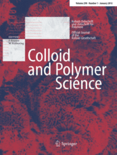
COLLOID AND POLYMER SCIENCE
Bridging Theory and Application in Materials ResearchCOLLOID AND POLYMER SCIENCE is a prestigious peer-reviewed journal published by SPRINGER that serves as a vital resource for researchers, professionals, and students in the fields of Colloid and Surface Chemistry, Materials Chemistry, and Physical and Theoretical Chemistry. With ISSN 0303-402X and E-ISSN 1435-1536, the journal has established itself as a significant contributor to the scientific community since its inception in 1974, continuously providing valuable insights into the dynamic interplay between colloids and polymers. The journal is recognized for its rigorous quality, reflected in its Quartile rankings; it stands in Q3 for Colloid and Surface Chemistry and Physical and Theoretical Chemistry, and Q2 for Materials Chemistry and Polymers and Plastics in 2023. COLLOID AND POLYMER SCIENCE is an important platform for disseminating high-impact research that addresses fundamental and applied aspects of these critical fields, enhancing our understanding of material interactions and fostering innovations. The journal operates under traditional subscription models, ensuring that optimal academic rigor is maintained. With a strong emphasis on interdisciplinary studies, it encourages contributions that bridge gaps between theory and application, making it an essential reading for those aspiring to excel in the diverse world of materials science.

RUSSIAN JOURNAL OF APPLIED CHEMISTRY
Elevating Expertise in the Chemical SciencesRUSSIAN JOURNAL OF APPLIED CHEMISTRY, published by PLEIADES PUBLISHING INC, serves as a pivotal platform for advancing knowledge in the fields of chemical engineering and general chemistry. With an ISSN of 1070-4272 and an E-ISSN of 1608-3296, this journal has been in continuous publication since 1995 and is set to continue until 2024. Although it operates without an open access model, researchers can access a wealth of innovative research findings, critical reviews, and insightful discussions that reflect the current trends and challenges in applied chemistry. Its rankings place it in Q3 quartiles for both Chemical Engineering and Chemistry as of 2023, indicating its emerging influence within these disciplines. The Scopus rankings further highlight its relevance, positioning it in the lower percentiles, suggesting a fertile ground for researchers aiming to elevate the field. Engaging with this journal can enrich academic and professional understanding, making it an essential resource for anyone dedicated to furthering their expertise in applied chemistry.